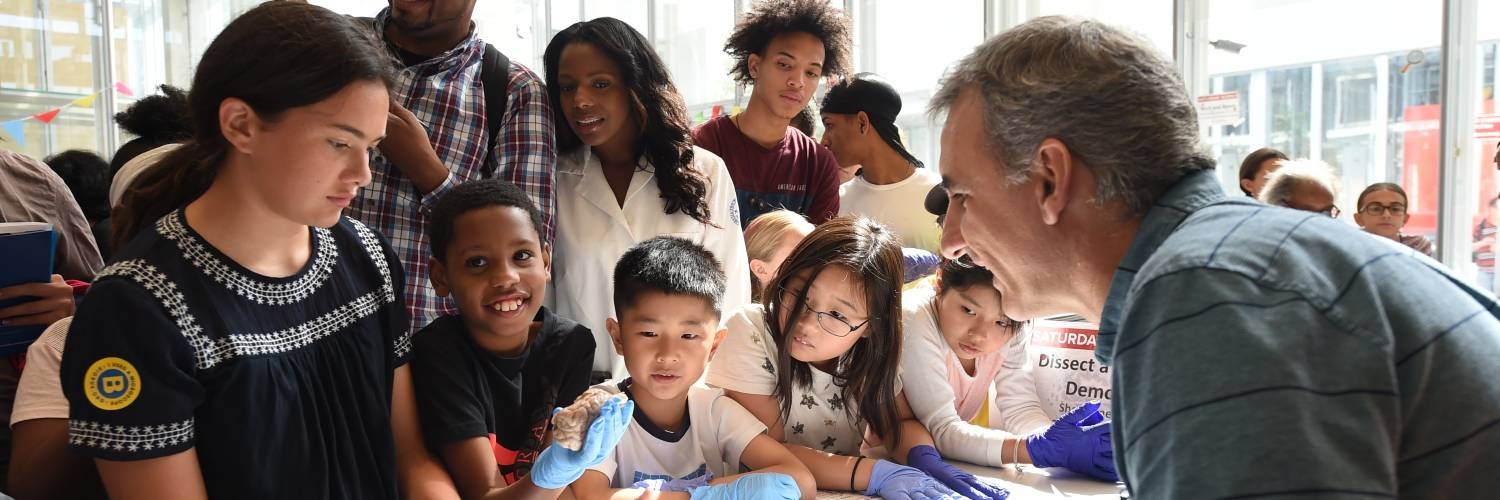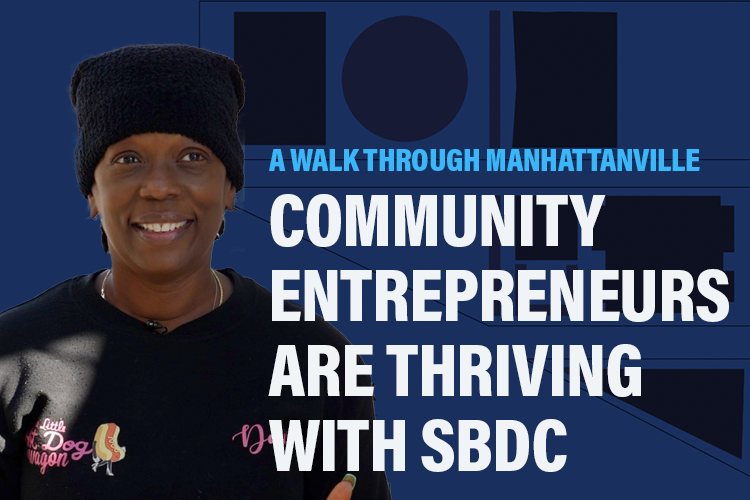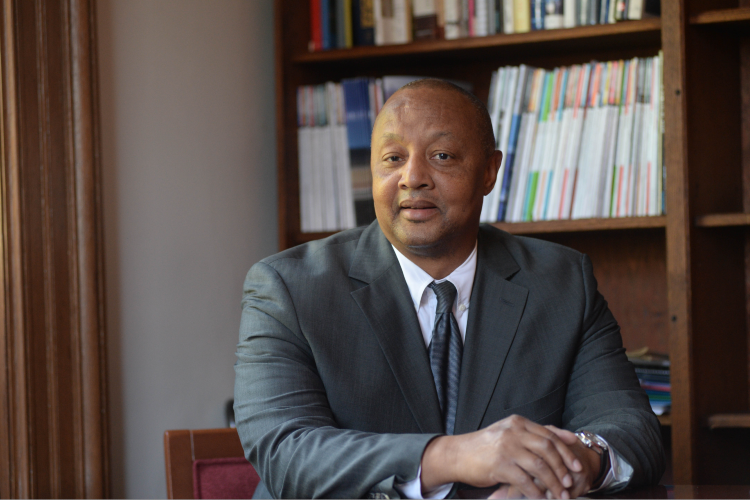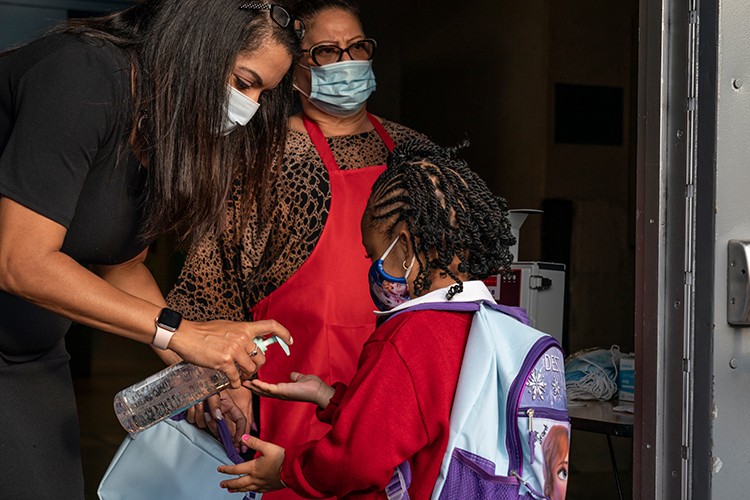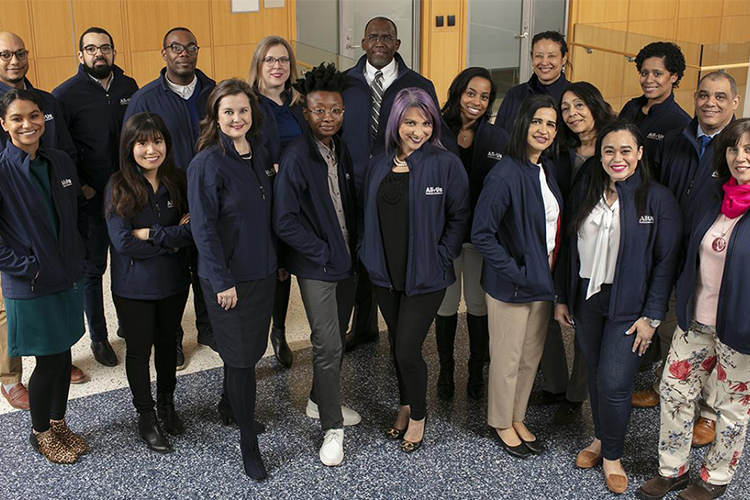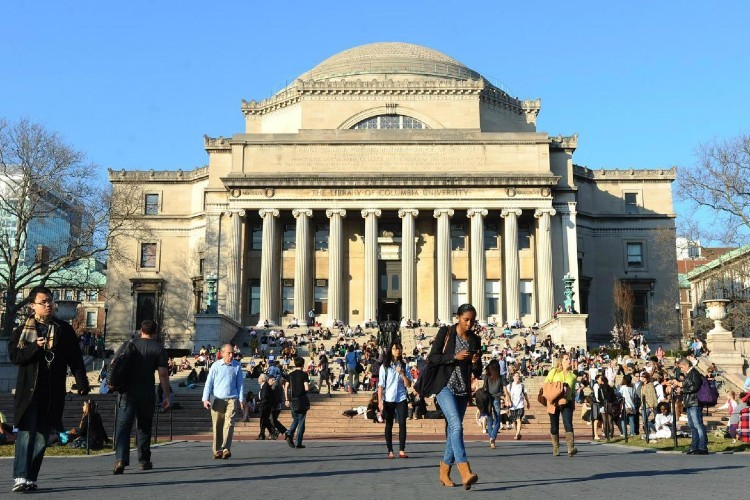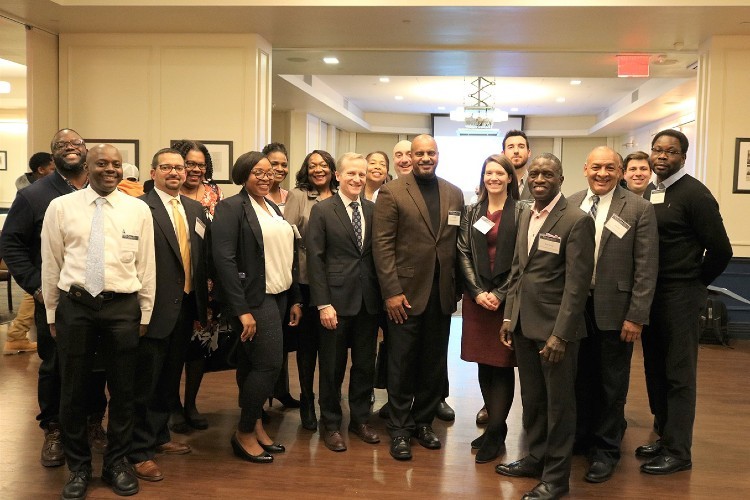As part of a multi-faceted effort to address the legacy of generations of structural racism in the U.S., Columbia has created an institution-wide Community Advisory Council to support and expand community partnerships; to facilitate meaningful engagement with our neighbors in surrounding communities; and to seed new ideas to achieve greater impact.
Our mission is to support a prosperous and equitable ecosystem in Harlem and Upper Manhattan through the efficient use of technical assistance, health-equity programming, loans, grants, education, training and other community-based programming
Meet the Council
Wafaa El-Sadr is University Professor of Epidemiology and Medicine, Director of ICAP at Columbia University, Director of Columbia World Projects and the Mathilde Krim-amfAR Professor of Global Health at the Columbia Mailman School of Public Health. Dr. El-Sadr received her medical degree from Cairo University in Egypt, a masters degree in public health (Epidemiology) from Columbia Mailman School of Public Health and a masters degree in public administration from the Harvard University Kennedy School of Government. She was named a McArthur fellow in 2008, is a member of the National Academy of Medicine in 2009, a fellow of the African Academy of Sciences in 2018 and a member of the Council for Foreign Relations in 2021.
Rafael Lantigua, M.D. is the Associate Dean for Community Service, Director of the Office of Community Service Programs, and Professor of Medicine at Columbia University Vagelos College of Physicians and Surgeons. Since coming to Columbia in 1980, he has a distinguished record of working to improve the health of aging minorities and working to advance community partnerships and community based participatory research. He was the driving force behind CALME, the Columbia Center for the Active Life of Minority Elders, which supported research to reduce health disparities affecting minority elders and established an important bridge between Columbia researchers and the neighboring community. Dr. Lantigua also helped start the Columbia Center for the Health of Urban Minorities to shift community based-research from studies for the community to studies with the community
Dr. Olajide Williams obtained his medical degree from the University of Lagos, Nigeria, and a Master’s degree from Columbia University’s Mailman School of Public Health in New York. He is currently a tenured Professor of Neurology, Chief of Staff of the Department of Neurology, and Associate Dean of Community Research and Engagement at Columbia University. He is a global leader in stroke disparities intervention research, Principal Investigator of multiple NIH awards, a co-Chair of the Columbia University Irving Medical Center (CUIMC) Anti-Racism Task Force, and co-Director of the Columbia Wellness Center. Author of numerous peer-reviewed articles, Dr Williams has received many prestigious awards including the European Stroke Research Foundation Investigator of the Year award, Columbia University Outstanding Teacher of the Year award, a National Humanism in Medicine award from the AAMC, American Heart Association Trailblazer award, Fast Company Most Creative 100 list, and has been a regular feature of the annual New York Magazine Best Doctors lists. He is Founder and President of Hip Hop Public Health, a nationally recognized nonprofit organization that leverages music, art, and science for health promotion in communities of color.
Melissa Begg is Dean of the Columbia School of Social Work. She is a population health scientist deeply committed to developing the strongest possible evidence base for human health and well-being. She previously served as Vice Provost for Academic Programs at Columbia University and vice dean of public health; she was also co-director of the Irving Institute for Clinical and Translational Research. Her early research focused on methods for evaluating associations from sibling studies, especially as applied to early life determinants of adult health. She has directed a number of NIH-funded training programs, including two career development programs to promote diversity in the health sciences. Dr. Begg was given the University-wide Presidential Award for Outstanding Teaching in 2006. As an academic administrator, she has focused on convening interdisciplinary scientific teams, developing innovative curricula, creating academic mentorship programs, and advancing diversity in the research workforce.
Recent News About Our Programs
Columbia has a wide range of programs for the community. The council hopes to scale and coordinate these programs to achieve an impact that significantly addresses local challenges and opportunities. A few programs are highlighted below. You can see a full list in the Neighbors Resource Directory.
Let's Work Together
If you would like to collaborate with the Community Advisory Council, consider joining the Columbia Community Network, which is designed to strategically connect the communities surrounding Columbia with the university’s public-facing programs and initiatives to benefit low-income, low-wealth, and other disadvantaged communities.
We will partner with small businesses, faith-based institutions, arts and culture organizations, schools and other educational groups, legal aid entities, business coalitions, social service agencies, economic development organizations, historical associations, health care providers, affordable housing ventures, and other such groups that contribute to both individual and community advancement.
